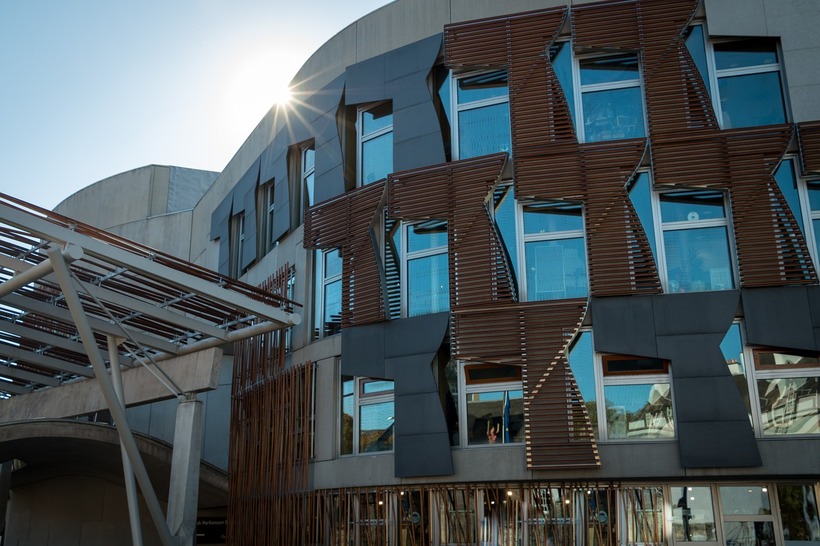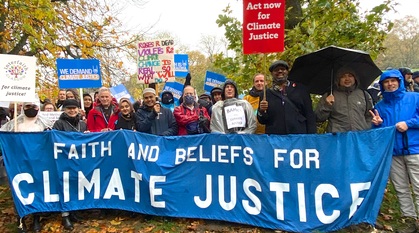3 things to expect from the Scottish Parliament that aren’t an independence referendum
From tax reform to the climate crisis, Andrew Tomlinson takes a look at what to expect from the Scottish Parliament that isn't an independence referendum.

The sixth session of the Scottish Parliament has now begun. While a great deal of coverage of the election has focussed on the prospect of a second independence referendum, there are other issues we should expect to see on the political horizon.
The result saw the Scottish National Party (SNP) secure 64 seats. Along with the eight that went to independence-supporting Scottish Green Party, this means that a majority of MSPs are in favour of a second referendum on Scottish independence. If you look at the share of the vote however, union-supporting parties and independence-supporting parties roughly split the vote 50/50. Yet to reduce this election to a referendum on Scottish independence is, I think, to largely miss the point.*
A new parliament
For a start, this was the first Scottish election in which refugees and those serving prison sentences could vote. It was an election that returned a record number of female MSPs. 45% of MSPs are now women, including the first women of colour, and the first MSP who is a wheelchair user. The parliament also increased the number of MSPs with a disability, and MSPs from Asian and Minority Ethnic communities, although Holyrood is yet to see its first Black MSP. All these are significant events in their own right and will undoubtedly have a bearing on the parliament, the issues it raises and the manner in which it represents the people of Scotland.
What is perhaps most striking about this election, however, is the level of agreement across the political parties. While not full proof, the party manifestos give us a sense of what is likely to be on the political agenda in Scotland for the next five years and the potential direction of travel.
So, what are some of the things that we can expect?
1. More action on the climate crisis
With the UN Climate Summit, COP26, taking place in Glasgow later this year, it is perhaps unsurprising that the climate crisis featured heavily in each of the manifestos. In the past Scotland has been praised for its ambitious targets, yet received some criticism for not being specific in how it was going to meet them.
Encouragingly, within the manifestos there was broad agreement about what action to take. There was support for significant government money for the creation of green jobs and the retraining of those in the oil and gas sector. Decarbonising domestic heating, increasing investment in renewable heating, a circular economy Bill, restoring peatland, using 30% of Scotland's publicly owned land for biodiversity / rewilding, increasing spending on active travel and decarbonising rail and bus services all featured as well. The SNP have also committed to appointing a Cabinet Secretary for Net Zero and a Minister for a Just Transition.
Things to watch out for: The Scottish Government's indicative Nationally Determined Contributions (iNDCs) which will outline the steps it will take to meet its climate change obligations. These will be being worked on over the coming months.
2. Further work on incorporating human rights treaties into domestic law
The SNP, Labour, the Greens and the Liberal Democrats all committed to incorporating further human rights treaties into Scots law. As part of the UK, Scotland is already signed up to international human rights laws but only some of these, the ones listed in the Human Rights Act such as the right to vote and the right to private family life etc., can be enforced through the domestic courts. The commitment from these parties would see further rights, known as cultural and economic rights, such as the right to food, the right to adequate housing, the right to a healthy environment etc., incorporated into domestic law. It would be a significant step.
Steps along these lines began in the last session of parliament when the UN Convention of the Rights of the Child (Incorporation) Scotland Bill was passed unanimously. However, the UK government is concerned about obligations this legislation might place on UK government ministers and the impact on the UK government's ability to legislate for Scotland. It has referred the legislation to the Supreme Court. This may have a bearing on future human rights legislation.
Things to watch out for: The Supreme Court's ruling on the UNCRC (Incorporation) Scotland Bill. There is no date set for this, but previous referrals have taken eight months to be decided.
3. A conversation about land ownership and tax
Five years after the Land Reform Act 2016, it looks like there will be further steps to explore land ownership within Scotland. Four of the five parties with Holyrood representation committed to increasing the Scottish Land Fund, further supporting community buy-outs, and to bringing new legislation to look at land reform and land value capture.
The manifestos also suggest that council tax will be reviewed, with three parties pledging to replace it. The SNP have committed to reviewing council tax through a citizens' assembly, while the Greens have called for a citizens' assembly on tax altogether. Either way it looks like tax justice will be a feature of Holyrood's debates and it looks like there will be opportunities for communities to engage.
Things to watch out for: a citizens' assembly on council tax, and a new land reform bill in the next programme for government.
So there we have it, three things that we can expect to see during this session of parliament. As these issues arise we'll be able to engage with them.
In the meantime, why not send a postcard to your MSP, congratulating them on their appointment, wishing them well in their endeavours and highlighting our hopes as Quakers for the future. Roughly a third of this crop of MSPs are new to the parliament so this is a perfect opportunity to make a connection. Who knows? It may be the start of a conversation about tax justice…


